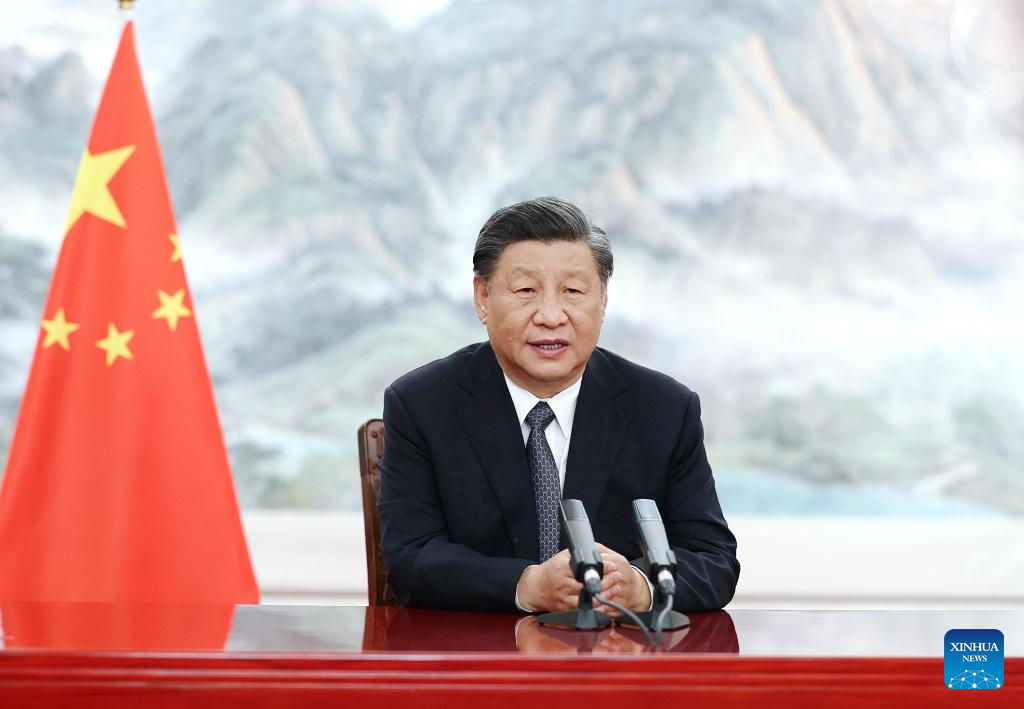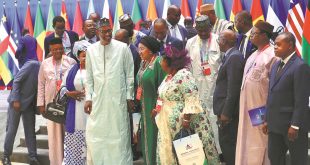Published:June 25,2022

The continued spread of the COVID-19 pandemic and geopolitical conflicts have fueled overlapping crises in today’s world. Concerns for the future of humanity and deficits in global governance continue to pile up and demand utmost attention.
Pointing out that humanity is standing at the crossroads of history, Chinese President Xi Jinping calls on the international community to embrace a global governance philosophy that emphasizes extensive consultation, joint contribution and shared benefits.
At the 14th BRICS Summit held on Thursday, Xi offered his fresh insights about what China believes the world should do to tackle global challenges and stimulate common development, calling for building a community with a shared future for mankind and jointly creating a bright future for humanity.
Noting that the BRICS countries are representatives of emerging markets and developing countries, Xi said “we must make the right decision and take responsible actions at this critical juncture of history. What we do will have a significant impact on the world.”
VISION OF GLOBAL SECURITY
While meeting with the heads of state of Brazil, Russia, India and South Africa in virtual format, Xi raised his concerns for global security over such issues as the outdated yet still hovering Cold War mentality, power politics as well constantly emerging traditional and non-traditional security threats. And he also shared his perspectives on how to meet those challenges.
“I put forward the Global Security Initiative (GSI), which advocates a vision of common, comprehensive, cooperative and sustainable security, follows the philosophy that humanity is an indivisible security community, and aims to create a new path to security that features dialogue over confrontation, partnership over alliance and win-win over zero-sum,” Xi said.
The Chinese leader first proposed the GSI at the Boao Forum for Asia earlier this year for the purpose of fostering a new type of security that replaces confrontation, alliance and a zero-sum approach with dialogue, partnership and win-win results.
In the face of rising unilateralism that is endangering world development, peace and stability, Xi said Wednesday at the opening ceremony of the BRICS Business Forum that “we in the international community should reject zero-sum games and jointly oppose hegemonism and power politics.”
“We should build a new type of international relations based on mutual respect, fairness, justice and win-win cooperation. We should be clear that we are a community in which all countries share a common stake, and we should see that the light of peace will reach all corners of the world,” he added.
“The China-proposed Global Security Initiative is crucial as it comes at a critical time when the world is grappling with multiple crises,” said David Monyae, director of the Center for Africa-China Studies at the University of Johannesburg.
The GSI, which emphasizes the need for common, comprehensive, cooperative, and sustainable security, provides the right guiding philosophy to ensure global peace and security, Monyae said.
PURSUING COMMON DEVELOPMENT
Under Xi’s guidance, China has been committed to improving global governance and building a world of common prosperity and enduring peace. To address global challenges, the president underlined the importance of development as the key to solving various difficult problems.
“Inclusiveness, shared benefits and win-win outcomes is what we should pursue,” Xi said at the BRICS Business Forum on Wednesday, adding “we should promote extensive consultation and joint contribution to deliver shared benefits, enhance global economic governance, and increase the representation and say of emerging markets and developing countries. This will ensure that all countries enjoy equal rights, follow the rules as equals, and share equal opportunities.”
To this end, the Global Development Initiative (GDI) proposed by the Chinese president at the opening of the 76th session of the UN General Assembly last year is expected to consolidate consensus and pool strength worldwide to promote sustainable global development.
The GDI aims to “re-energize the implementation of the UN’s 2030 Agenda for Sustainable Development and build a global community of development,” Xi said Thursday, adding that “China stands ready to work with BRICS partners to add more substance to the GDI and contribute to stronger, greener and healthier global development.”
And under Xi’s guidance, China has been striving to involve more countries, especially from the Global South, to jointly improve global governance.
“We should advance democracy in international relations and reject dominance by just one or several countries. All countries should jointly shape the future of the world, write international rules, manage global affairs and ensure that development outcomes are shared by all,” Xi said in a keynote speech at the United Nations Office at Geneva in 2017.
In that same year, when China hosted the 9th BRICS Summit held in the southeast coastal city of Xiamen, Xi proposed the “BRICS Plus” cooperation approach to broaden the group’s “circle of friends” in a collective pursuit of shared development and prosperity for all.
Over the past five years, “BRICS Plus” cooperation has been deepened and expanded, setting an example of South-South cooperation and seeking strength through unity among emerging markets and developing countries.
The approach will further unleash the potential of the BRICS cooperation mechanism, thus pushing ahead with economic development in the world, said Rosalia Varfalovskaya, a leading researcher of the Russian Academy of Sciences.
From setting forth initiatives to promoting the role of emerging markets and developing countries, China has been building platforms for international cooperation by making bigger the “pie” of mutual benefit.
“Only when countries develop together can there be true development; only when countries prosper together can there be true prosperity,” Xi said while addressing via video link the opening ceremony of the Second UN Global Sustainable Transport Conference late last year.
The GDI and GSI presented by China are of immense benefit to the international community, said Sudheendra Kulkarni, former chairman of the Mumbai-based think-tank Observer Research Foundation.
“These initiatives are noble ones because they are in the interest of the whole mankind” and look for “the contribution of all countries in order to sustain peace and stability in the world and in order to work all together for the common interest,” said Algerian Ambassador to China Hassane Rabehi.
Xinhua
 Africa -China Review Africa -China Cooperation and Transformation
Africa -China Review Africa -China Cooperation and Transformation
